As Turkey enters a new election process, the government prepared a new law bill to control the spread of all kinds of news and information and submitted it to the Turkish Grand National Assembly. Although the bill, which foresees changes in many laws and consists of a total of 40 articles, has some positive regulations in sight, it is understood that it aims to take internet communication as well as internet media and social media under the control of the government and to silence all kinds of dissenting voices with the threat of punishment.
Starting with the carrots in the bill prepared with the “carrot and stick” approach, the bill includes “internet news sites” within the scope of the Press Law. The amendments to the Press Law regulate the inclusion of internet news sites within the scope of this law and press card issues. If applied in an impartial and unbiased manner, this regulation will have two major positive consequences.
First of all, journalists working on internet news sites will be able to obtain a press card and will be subject to the legislation for the press workers. This should be considered an important achievement regarding journalists’ social rights and job security. Secondly, internet news sites are allowed to benefit from government advertising, which will significantly contribute to increasing this media’s revenues.
However, for these advantages to be realized, the implementation of the provisions of the law by impartial and independent bodies must be guaranteed. However, the institutional provisions in the bill seem to be far from providing these guarantees. Because Article 12 of the bill regulating the conditions for obtaining a press card will make it extremely difficult to get a press card.[1] Also, Article 14 of the bill stipulates that five out of nine members of the Press Card Commission, which is endowed with powers such as evaluating press card applications and cancelling cards, will be appointed directly by the Head of Communications.[2] This provision in itself shows that the Press Card Commission will not be independent and will not act impartially and that the applications of dissident journalists will not be evaluated impartially. This structure also poses a fundamental problem in terms of the provision[3] regarding the cancellation of the press card in Article 15 of the bill. In other words, the fact that a commission under the control of the Head of Communications is endowed with the authority to cancel press cards on the grounds of “acting contrary to the principles of press ethics” is a serious threat to dissident journalists.
In addition, the waiting periods foreseen for the re-application of those whose press cards have been cancelled in Article 16[4] of the bill should also be discussed.
On the other hand, with the amendment made in Article 14 of the Press Law by Article 7[5] of the bill, it will be compulsory to publish the responses and correction notices sent to internet news sites in the same way and in case of a decision to remove the content or block access, it is foreseen that the response text will be published on the main page of the site for one week. Such an obligation poses a serious threat to the freedom of the press.
With the amendments made in Law No. 195 on the Organization of the Press Advertising Agency, the publication of official announcements and advertisements on internet news sites has been regulated. Changes were made in the structure of the General Assembly of the Press Advertising Agency, and the number of members appointed by the President of the Republic was increased from 12 to 14. The total number of members is 42.
A New Criminal Complaint in the Turkish Penal Code
One of the most important regulations in the bill, which should be accentuated, is the crime of “publicly disseminating misleading information to the people”, which is introduced in Article 217/A of the Turkish Criminal Code by Article 29 of the bill.[6] Accordingly, it is envisaged that whoever publicly disseminates false information about the internal and external security, public order and general health of the country in a manner conducive to disturbing the public peace solely by creating anxiety, fear or panic among the people shall be punished with imprisonment from one year to three years.
Although this regulation is tried to be legitimized under the discourse of combating “fake news”, it is clear that it poses a severe threat to freedom of expression and is suitable for use as a means of censorship and repression.
Although the distortion of the truth, the derivation of libel, and the use of diverse manipulations and propaganda to achieve various goals are as old as human history, it has become much more common to obtain political, social, economic and psychological results with manipulated information with the development of communication technologies and the internet and the spread of social media.
But interfering with the dissemination of manipulated information would also constitute an interference with the right to the free acquisition and dissemination of information and news, which is an indispensable element of democracy. For this reason, it is imperative that the arrangements to be made comply with the basic principles of international human rights law on freedom of expression. Freedom of expression guarantees not only the views that are pleasing and accepted by all but also the expression of thoughts and information that are unpleasant or shocking to a segment of society or public authorities.
An open society requires the free dissemination and discussion of all forms of information, the free expression of different points of view on public issues, and the broadest protection of criticisms of the government and its policies on political issues. For the media and citizen journalism, the fourth force of democracy, to properly fulfil its role as public oversight, it must be able to publish all kinds of news and ideas in accordance with the apparent reality without any threat of pressure and sanctions. In this context, proving or verifying value judgments is impossible.
The content of the concept of fake news (false information) is ambiguous, and the punishment of fake news puts the power to define the truth in the hands of the ruling government. Such power allows the government to characterize any information that it thinks is against itself, does not want or does not like, as contrary to the truth and to punish its opponents. In a country where the independence of the judiciary is under serious threat, such regulation would serve as a censorship mechanism. Despite the threats posed to democracy due to this risk, fake news has never been criminalized in any democratic country.
Because reality is multidimensional, and the expression of these various dimensions from different perspectives constitutes the essence of freedom of expression and the essence of democratic pluralism. Stating a dimension of the truth that the government does not like can easily be described as “the dissemination of false information (contrary to the truth)”.
Turkey’s judicial practice shows that criminal norms are interpreted too broadly in violation of international human rights standards and that freedom of expression is constantly violated. In recent years, the ECtHR has ruled that many provisions of the Turkish Criminal Code (TCC) are unforeseeable and do not meet the requirement of certainty that should be found in the law.[7] In addition, many independent observers have found that criminal and anti-terrorism legislation is used for judicial harassment of dissidents.
Turkey’s experience of blocking access has shown that the judiciary is not a guarantee for freedom of expression. The violation decisions of the Constitutional Court confirm this situation.[8] Similarly, the Radio and Television Supreme Council (RTÜK) has become a tool to punish the opposition media. The punishment imposed on channels that broadcast the speech of the president of the main opposition party is one of the latest examples. This is evidence of how the proposal will be implemented if it becomes law. The new law will be used as a means of silencing social dissent and controlling social media as we enter the electoral process.
The proposed regulation is, in many respects, unconstitutional.
First of all, the content of the concept of false information is ambiguous and contrary to the principle of legality of crimes and punishments and the principle of lawful limitation of fundamental rights. Reality is multidimensional, and the expression of truth from different points of view cannot be described as “fake news”. In addition, other concepts are derived by considering whether the shared content is true and whether the sharer knows the content’s accuracy and intention (disinformation, misinformation, mal-information etc.). “Fake news” is ambiguous because it disregards these concepts’ differences. In addition, the concept of “dissemination” will have unforeseeable and ambiguous consequences when used without distinguishing between different situations, such as producing content, sharing content created by someone else, liking content created by someone else, sharing with an affirmative addition or critical addition, or sharing for purely disclosure purposes.
No one should be forced to investigate the extent to which a piece of information they have learned reflects the truth before sharing it with others like a prosecutor. International human rights standards consider the conformity of information to apparent truth sufficient. The sharing of information that conforms to the evident truth cannot be criminalised. For punishment, the proposal neither requires the knowledge that the information is contrary to the truth nor has a clear definition of the concept of dissemination. It is unclear whether misleading content produced for political manipulation and disseminated by bot accounts falls under this regulation.
As a guarantee in the regulation, it is seen that the dissemination of false information is required to be “conducive to disturbing the public peace”. However, it is seen from the application of similar provisions in the TCC that this does not constitute an absolute guarantee.
Government circles claim that the proposed legal change is similar to Germany’s. The German Social Media Act dated 2017 (NetzDG) only provides for the removal of illegal content. It does not make a new definition of illegality but refers to the provisions of the existing criminal code. Therefore, the new regulation in the bill has no relation to the German social media law.
The regulations in the “Law on the Protection from Online Falsehoods and Manipulations” enacted in Singapore in 2019 are contrary to international human rights standards and are heavily criticised.
The fight against fake news in the world is carried out in a multifaceted and multidimensional manner with the participation of all stakeholders such as technology companies, social media organisations, non-governmental organizations, governments, and the insistence on a regulation that directly foresees criminal sanctions instead of such a comprehensive struggle indicates that the aim of th
e government is not to fight fake news but to silence social opposition.
If this law is adopted, both the constitution and Turkey’s international obligations will be violated. A multidimensional struggle is, therefore, necessary for the withdrawal of the bill.
On the amendments made to Law No. 5651
Some of the provisions in the bill foresee the amendment of Law No. 5651. Article 31 of the bill states that the amendment made to Article 6/A of the Law No. 5651 clarifies the authority of the Access Providers Association (ESB). The mandate of the ESB is regulated as the implementation of all access blocking decisions except those in Articles 8 and 8/A.
With the amendment made in the article 8 of the Law no. 5651 by the Article 32 of the bill, both the scope of catalogue crimes that may be used as grounds for blocking access decisions is expanded, and the authority of the BTK President to decide to block administrative access has been expanded to include all catalogue crimes regardless of whether the site is[9]at home or abroad. Thus, the Constitutional Court’s previous annulment decision regarding obscenity offences is alsorendered inconclusive.[10]
In addition, no appeal against the decisions of the President is foreseen.
With the amendment made in Article 9 of Law No. 5651 by Article 33 of the bill, the objection authority is regulated only in terms of the ninth paragraph. However, the Constitutional Court made a pilot decision finding that this article was unconstitutional in many respects and communicated the decision to the TGNA to make the necessary correction.[11]However, there is no suggestion in this direction in the bill.
Article 34 of the bill makes radical changes to the Additional Article 4 of Law No. 5651. In this context, to ensure that social network providers implement their obligation to have a representative in Turkey, the legal entity representative should be a capital company, and the obligations of social network providers are increased.
The scope of the obligation to report is extended.
In investigations and prosecutions for certain crimes, the obligation to provide the identity information of suspects or defendants to public authorities is imposed.
If this obligation is not fulfilled or access blocking decisions are not implemented, an advertising ban and sanctions up to 90% bandwidth throttling are foreseen.
The bandwidth may be reduced if the administrative fines are not applied under the law.
Social network providers are obliged to provide a filtered service specific to children.
It is envisaged that social network providers will be held responsible for the content under certain conditions.
The scope of the representatives’ administrative, financial and criminal liability is expanded.
Social network providers are required to report criminal content to law enforcement.
The scope of the obligation of social network providers to provide information is expanded, and public authorities are given the authority to conduct inspections at the premises of social network providers. When considered together with the obligation to keep the information of such users in Turkey, it will have serious consequences.
With the amendment made to the Electronic Communications Law No. 5809 by the Article 36 and the following articles of the bill, the concepts of “above-network service” and “above-network service provider” are defined, and applications such as WhatsApp are included in the scope of the law in this context. Companies providing these services are obliged to open a representative office in Turkey, and it is foreseen that they can only offer these services within the framework of their authorization. The obligation to provide information is expected of these institutions. In addition, the authority to make arrangements for these services is given to the public authority.
If a service provider fails to open a representative office or fulfil other obligations, administrative fines will be imposed, and internet bandwidth will be gradually reduced up to 95%.
When the bill as a whole is evaluated, it is seen that the aim is to bring the freedoms of opinion, expression and communication under strict control of the public administration.
[1] ” Requirements for people who can get a press card
ADDITIONAL ARTICLE 3- Requirements for those who apply for a press card;
- a) Should be over 18 years old,
- b) Graduated from at least a high school or an equivalent educational institution,
- c) Not restricted or prohibited from public service,
ç) Even if the periods specified in Article 53 of the Turkish Penal Code dated 26/9/2004 and numbered 5237 have passed; imprisonment for 5 years or more for an intentionally committed crime or no conviction for blackmail, theft, forgery, fraud, breach of trust, perjury, perjury, slander, fabrication, obscenity, prostitution, fraudulent bankruptcy, embezzlement, extortion, bribery, smuggling, bid rigging, rigging of performance, laundering of property values arising from crime, sexual crimes, crimes against public peace, crimes against the constitutional order and the functioning of this order, crimes against national defence, crimes against state secrets and espionage,
- d) No conviction for terrorist crimes listed in Article 3 of the Anti-Terrorism Law No. 3713 and dated 12/4/1991, and crimes committed with the aim of terrorism listed in Article 4 or crimes specified in Article 6, or in Article 4 of the Law on Prevention of Financing of Terrorism dated 7/2/2013 and numbered 6415,
- e) Not having been convicted of the crimes in the second paragraph of Article 25 of this Law,
- f) To have made a contract in accordance with the provisions of the Law on the Regulation of Relationships Between Employees and Employees in the Press Profession dated 13/6/1952 and numbered 5953, and to work without interruption for a period of not more than one month from the date of dismissal, except for force majeure.
Publishers of periodicals or legal entity representatives requesting a press card, chairs of the board of directors of radio and television channels, employees who can obtain a press card in public institutions and organizations, and Turkish citizen media members working in foreign press-broadcasting organizations, who request a press card, are not subject to the provisions of subparagraphs (f) and (g).
The condition specified in subparagraph (f) of the first paragraph is not sought for those who request a permanent and free press card and those who request a press card connected to a duty through the Turkish Radio and Television Corporation (TRT).”
[2] Press Card Commission
ADDITIONAL ARTICLE 5- Commission;
- a) Two members representing the Presidency,
- b) Excluding the higher organizations formed by merging of professional organizations of media and broadcasting, one member to be determined by the professional organization with the highest number of press card holders among the professional organizations of press and broadcasting established by the owners and/or employees of the periodicals,
- c) Excluding the higher organizations formed by merging of professional organizations of media and broadcasting, one member to be determined by the professional organization that has the highest number of press card holders among the media professional organizations established by the owners and/or employees of the media professional organizations established in provinces other than Istanbul, Ankara and İzmir,
ç) One member to be determined by the Presidency from among the permanent press card holders,,
- d) One member to be determined by the professional organization with the highest number of members among the professional organizations of media and broadcasting established by the chairman of the board of directors of radio and/or television broadcasting at the national level and/or journalist employees, excluding the upper organizations formed by the merger of press-broadcasting professional organizations,
- e) One member to be determined by the Presidency from among journalists holding a press card attached to the task,
- f) One member to be determined by the union with the highest number of press card holders among the unions operating as a labor union,
- g) One member to be determined by the Presidency from among the deans of the Faculty of Communication or journalists holding press cards, ) It consists of nine members in total.
The term of office of the members is two years. Members whose term has expired can be re-elected.
The Commission evaluates the applicant’s qualifications, professional work, works and awards and decides whether or not the applicant will be issued a press card. The decisions of the Commission are implemented after they are approved by the President.”
[3] ” Conditions in which the press card will be cancelled
ADDITIONAL ARTICLE 6- If it is understood that the press card holder does not have the qualifications specified in the additional article 3 or has subsequently lost these qualifications, the press card shall be canceled by the Presidency
In case the press card holder acts in violation of the press moral principles determined in accordance with Article 49 of the Law No. 195 on the Organization of the Press Advertisement Institution, the press card shall be canceled by the decision of the Commission.”
[4] ” Consequences of cancellation of the press card
ADDITIONAL ARTICLE 7- Press card
In case of cancellation pursuant to the first paragraph of Additional Article 6, one year from the date of cancellation, even if the obstacle to obtaining a card disappears, In case of cancellation pursuant to the second paragraph of Additional Article 6, the press card will not be issued again unless five years have passed from the date of cancellation.
The periods specified in the first paragraph start to run from the date the canceled press card is returned.
Unless it is determined that action has been taken in accordance with Articles 12 and/or 13/A of the Judicial Registry Law dated 25/5/2005 and numbered 5352, for those who are in violation of subparagraphs (ç), (d) and (e) of the first paragraph of additional article 3 of this Law, no press card is issued.”
[5] “On the internet news sites, the correction and reply letter of the injured person can be written in the same fonts and style, by providing a URL link, in the pages and columns of the relevant publication, within one day at the latest, from the date of receipt of the article, without any corrections or additions by the responsible manager. In the event that the decision to block access and/or remove the content given about the publication is implemented, or the content is automatically removed by the Internet news site, the correction and response text is published on the home page of the Internet news site where the relevant broadcast was made for one week.”
[6] ” Public Dissemination of misleading information
ARTICLE 217/A- (1) A person who publicly disseminates false information regarding the internal and external security, public order and general health of the country in a way that is conducive to disturbing the public peace, just for the purpose of creating anxiety, fear or panic among the public, is liable for a period of one year to three years. punishable by imprisonment.
If the crime is committed by concealing the real identity of the perpetrator or within the framework of the activity of an organization, the penalty given in accordance with the above paragraph is increased by half.”
[7] On Article 301, TCC see Taner Akçam v. Turkey; on Article 299, Vedat Şorli v. Turkey; on Article 314, Selahattin Demirtaş v. Turkey (2); on Article 220/6 and 220/7, Işıkırık v. Turkey, İmret v. Turkey (2); on Article 125/3, Ömür Çağdaş Ersoy v. Turkey.
[8] On Article 8 of Law no. 5651, see Yaman Akdeniz and others, B. No: 2014/3986, 2/4/2014; on Article 8/A, see Birgün İletişim ve Yayıncılık Ticaret A.Ş. [GK], B. No: 2015/18936, 22/5/2019; on Article 9 see Ali Kıdık, B. No: 2014/5552, 26/10/2017; Keskin Kalem Yayıncılık ve Ticaret A.Ş. and others [GK], B. No: 2018/14884, 27/10/2021 (pilot judgement).
[9] ç) Offenses in the first and second paragraphs of Article 27 of the Law on the State Intelligence Services and National Intelligence Organization dated 1/11/1983 and numbered 2937)
[10] Constitutional Court, No:2015/76, Decision Number:2017/153, Decision date:15.11.2017, Official Gazette Date and Number: 7.2.2018 – 30325
[11] Keskin Kalem Yayıncılık ve Ticaret A.Ş. and others [GK], B. No: 2018/14884, 27/10/2021.

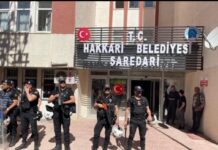
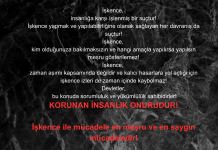
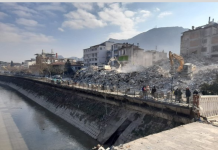
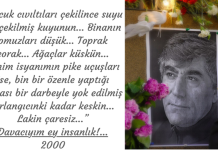

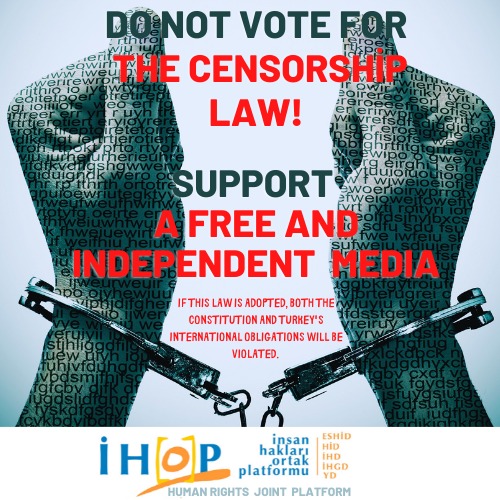

 Tunus Cd. 87/8 Kavaklıdere Ankara 06680 Türkiye Tel: +90 312 468 84 60 E-Posta:ihop@ihop.org.tr.
Tunus Cd. 87/8 Kavaklıdere Ankara 06680 Türkiye Tel: +90 312 468 84 60 E-Posta:ihop@ihop.org.tr.